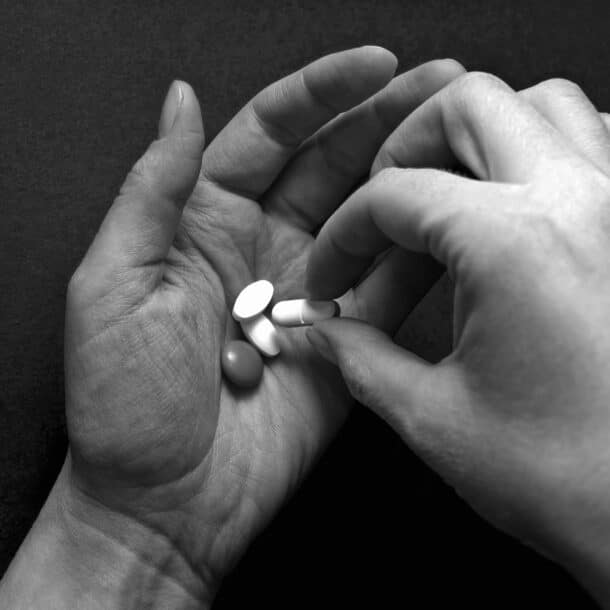
What Are the Benefits of Dual Diagnosis Therapy?
Alcohol and drug use disorder is a health issue that’s become a pandemic. However, many people don’t suffer from substance use disorder alone. They struggle with mental health issues simultaneously. This is called dual diagnosis or co-occurring disorder. According to the National Institute on Drug Abuse, 7.7 million have a mental disorder and an addiction.
Dual diagnosis means you have an alcohol or drug use problem and a mental health disorder, such as anxiety and depression, at the same time. It means you aren’t treating one condition, which makes it even more complicated. Although these conditions are co-occurring, it’s uncertain which causes the other. An untreated mental health issue can cause substance use problems, while substance use can aggravate a mental health problem. This article will explain more about co-occurring disorders and why dual-diagnosis therapy is essential.
Contact our inpatient drug rehab center for men today and get the help you need.
Dual Diagnosis/Co-occurring Disorders
Co-occurring disorders can make it challenging for patients to cope with day-to-day activities. Because it’s a complex condition that invoices two disorders, making a diagnosis and administering treatment can be difficult. It makes the recovery process also complicated.
The causes of co-occurring disorders vary from one individual to another. The common factors that contribute include:
Genetics
Specific genetic factors can increase a person’s risk of developing addiction and mental health issues. Mental health problems and SUD run in families. Many kinds of research have shown that genes may cause the development of dual diagnosis.
Environment
Negative experiences like childhood trauma and physical or emotional abuse can contribute to co-occurring disorders. These experiences can increase the chances of using substances as a coping mechanism.
Neurochemical imbalances
Brain chemicals or neurotransmitters transmit signals across synapses and enable communication in the brain cells. They regulate sleep, emotion, sexual function, etc. Some examples of neurotransmitters are dopamine and serotonin.
Imbalances in these chemicals can increase the risk of developing mental health and substance use disorders. Drugs and alcohol can disrupt the neurotransmitters and worsen mental health conditions.
Self-medication
Some people use substances to cope with stress, depression, and anxiety. They also take substances to alleviate disturbing symptoms of mental health disorders.
Developmental factors
Crucial developmental stages in a person’s life, such as adolescence or early adulthood, can lead to dual diagnosis. The brain is still developing in these periods, and the use of substances can hinder healthy brain maturation. This can increase the risk of a mental health condition.
Co-occurring disorder is complex, but it can be effectively treated. Dual diagnosis therapy can address each health issue to help patients recover.
Addiction and depression are commonly intertwined co-occurring disorders, but other mental health disorders can occur with substance misuse. Some of the most common conditions include; anxiety disorders, Attention-deficit/hyperactivity disorder (ADHD), PTSD, and bipolar.
Benefits of Dual Diagnosis Therapy
Dual diagnosis therapy is the best treatment option for co-occurring disorders because it addresses the underlying causes of a person’s addiction and mental health conditions. In the process, it creates a tailored treatment plan to alleviate the symptoms.
If you’re wondering if this treatment option is essential, you’ll be amazed by the benefits.
Improved Quality of Life
Dual diagnosis therapy helps patients cope with their mental health problems and addiction at the same time. Addressing both simultaneously instead of focusing on them separately can help patients recover faster and get on with their everyday lives. At an addiction treatment center like Healing Pines, clients receive comprehensive and personalized care that revolves around their needs.
Reduced Relapse Rates
Dual diagnosis therapy helps clients realize the relationship between addiction and mental health issues. By understanding both conditions, individuals are prepared to deal with the situation. In addition, they are less likely to relapse and have a higher chance of sticking to their recovery plan.
Increased Determination
Due to the treatment’s comprehensive approach, dual diagnosis therapy can motivate the patient to fight against their mental health conditions and addiction. This is important for those who give up easily when they feel results aren’t visible enough.
More Effective
Mental health conditions and addiction can’t be treated separately. If they are, the chances of complete recovery are minimal. Therefore, treating them concurrently is the best way to prevent any recurrence. That is what dual diagnosis therapy offers. It addresses underlying causes rather than alleviates symptoms, leading to longer-lasting results.
Better Preparation for Life After Treatment
Dual diagnosis therapy doesn’t end after clients have concluded their treatment regimen. It includes the aftercare program that gives patients access to support groups to ensure sobriety.
Healing Pines Offer Dual Diagnosis Therapy
The benefits of dual diagnosis therapy are proof of the treatment program’s effectiveness in addressing co-occurring disorders. Therefore, we recommend this option to anyone with an addiction and mental health issue.
Healing Pines Center is here if you’re struggling with a dual diagnosis and don’t know where to get treated. We are one of the best dual diagnosis treatment centers in the United States, with a high recovery rate. Our dual diagnosis therapy is tailored to aid our patient’s recovery adequately. With our compassionate and dedicated staff, you will enjoy the benefits of this treatment. Contact us today to get started!
Paul Leafstedt
Paul was born and raised in the beautiful state of Colorado. He went to college in California at CAL Poly Pomona, majoring in Mechanical Engineering. Being a person in recovery and always finding fulfillment in helping others succeed, Paul co-founded a treatment center in California with 4 other partners. Paul came back to Colorado to continue his journey in the field of addiction, and to share his vision for Healing Pines Recovery. “Colorado is such a magical place for me, its natural beauty and peace lend itself for the perfect environment to connect with yourself and others. Healing Pines is different, it’s real, you can feel it. What you see is what you get here. This is a safe place to dig deep and be vulnerable, to re-discover yourself, what the world has to offer and what you have to offer the world.”Begin Your Journey & Escape Addiction
The first step can be the hardest. Fill out the form or call us at (720) 575-2621. You will be connected with a Healing Pines Recovery specialist who can answer your questions and help you get started.
Let Us Help You
Speak to Someone Right Now





